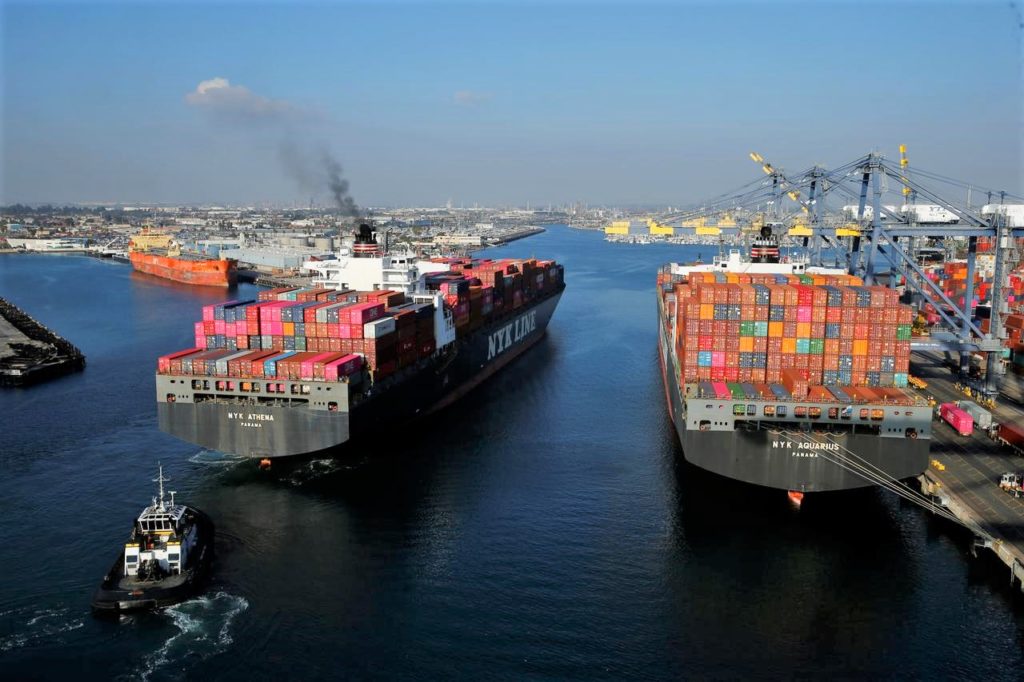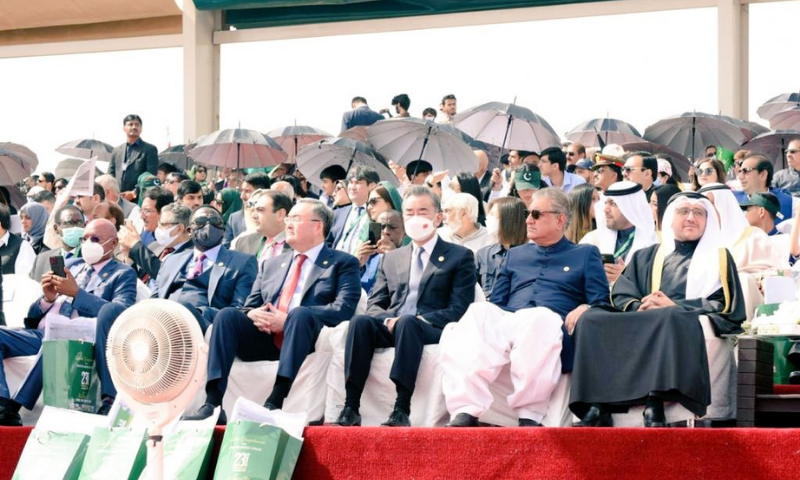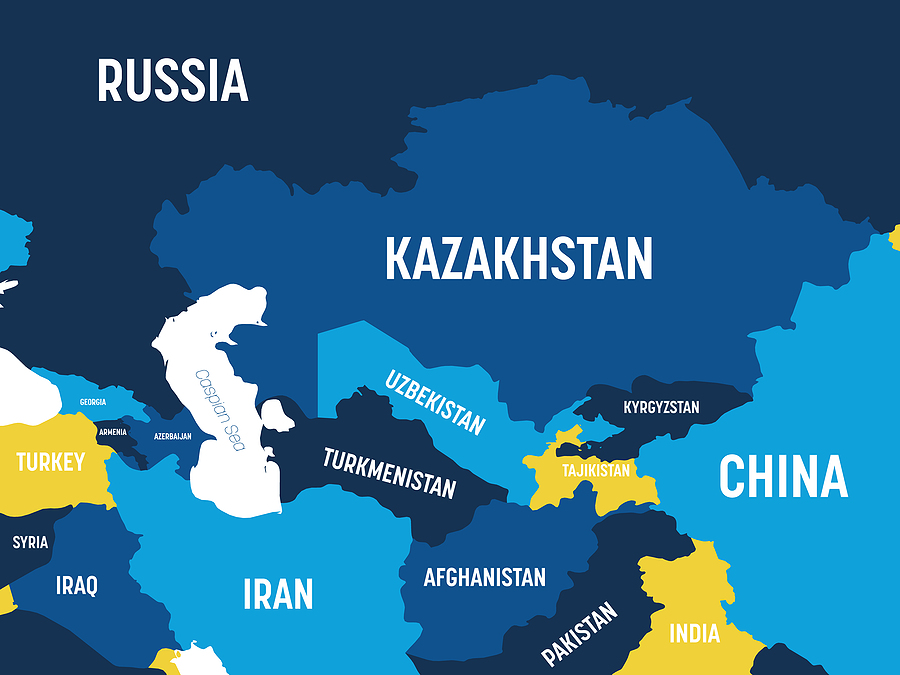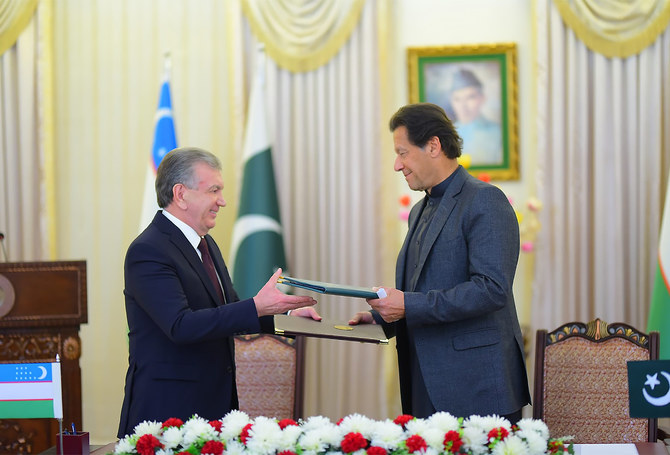The recent visit of Uzbek President Shavkat Mirziyoyev to Islamabad in the first week of March 2022 has re-energized academic debate on Pakistan-Central Asian relations. The intellectual circles of the international community started paying attention to the developments of multidimensional cooperative ties between Pakistan and the group of five Central Asian Republics. Also the leaders of different nations have started recalculating the strength of contemporary Pakistan-Central Asia ties because the diversification of inter-state collaborations between Islamabad and the leaders of the five former Soviet republics facilitated Pakistan in increasing its influence beyond the South Asian region. The extension of Islamabad’s sphere of influence beyond its home region also convinced Pakistani leaders of the active role of its diplomatic powers in the world. Thus, the Pakistan’ leaders have preferred to remain diplomatically close with the five states of the Central Asian region generally and Uzbekistan exclusively. The Uzbek government has always remained diplomatically supportive and politically coordinated for Pakistan in the political domain also. Subsequently, the leaderships of both states have been regularly visiting each other to explore their economic potential and political coordination in various unexplored domains. The recent visit of the Uzbek President could validate the growing cooperative bilateralism between Islamabad and Tashkent.
This visit could be marked as a historical milestone in the broader framework of Islamabad-Tashkent cooperative ties. The two-day visit covered the fields of politics and diplomacy, economic and business investment, security and defence, and culture and society during the high-level political conversations between the two leaders. The connectivity of culture in the broader spheres of social relations also remained an important point. The Uzbek delegation also dwelt upon the contemporary issues of regional and global politics and their impact on Islamabad and Tashkent. The multilevel meetings of the government representatives mainly focused on the present strength of their bilateral connections, which needs to be explored in different unmapped directions. In addition, the leaders also decided to multiply the areas of collaboration in economic affairs due to the unique geographical location of Pakistan and Uzbekistan in the South Asian and Central Asian regions. The exploration of economic potentials of each other is the common desire of both states, which has led the two governments to remain active in their political coordination and diplomatic support over various issues of regional and global importance.
In response to the changing dynamics of global and regional politics, both governments are determined to develop their common stance over different issues of great power politics. Under this principle, the Uzbek state authorities have always shared their concern on the issues of Kashmir and Afghanistan. After assuming the President’s office in Tashkent in 2016, this is the first visit of President Mirziyoyev, which the foreign offices of both states have marked as an important visit for recalling the history of cooperation between Islamabad and Tashkent. During the meetings, President Mirziyoyev and PM Imran Khan agreed to strengthen strategic partnership on the 30th Anniversary of establishing diplomatic ties. The history of cooperative interaction between both states initially started in the post-Cold War period when the disappearance of the Soviet Union from the face of the world changed the international system. The post-Cold War developments compelled various states to alter their mainstream foreign relations in the Soviet-less international system. Pakistan and Uzbekistan decided to formalize their ties and developed a common understanding of the Soviet-less international system. In this way, the government of Pakistan took the lead and formally recognized the independence status of Uzbekistan in 1991. In response to Pakistan, the political authorities from Tashkent accepted Pakistan a diplomatic friend and a reliable business partner from the Muslim world. In this way, the initial phase of cooperative bilateralism started between Islamabad and Tashkent, and the leading policymaking circles of both states started emphasizing exclusive foreign policies for each other. The adaptation of a pleasant diplomatic interaction between both nations gained massive support for the common ideological grounds which remains a strong and potent force in constructing the multidimensional collaboration between them. In other words, the common religious thoughts between their societies led both governments to smoothly construct their bilateral political and economic cooperation, supported by active diplomatic communications. Thus, the initial phase of cooperation between Islamabad and Tashkent laid the foundation of economic cooperation and political coordination between both states. This multidimensional economic engagement created multileveled trading and business collaboration in limited areas.

The historical disconnects created social and political gaps between Pakistan and Uzbekistan, which provided comparatively fewer investment opportunities to the business communities of both sides. The two-sided leaders tried to diversify their collaborating potential in different domains, but the absence of close socio-political and socio-economic connections between Islamabad and Tashkent hindered the scope of massive business investment. The prevalence of common religious bonds in both societies just provided an initial framework of diplomatic and political communications between the two governments without having adequate integration into the economic domain. The leaders of both nations under different political leaderships attempted to get benefits from the unique geographical features of their countries. Pakistan focused on the landlocked geographical position of Uzbekistan to extend its trading ties with other Central Asian nations, whereas Tashkent emphasized Pakistan’s position in the Chinese global geo-economic plans. For the persuasion of extended economic collaboration, the contemporary patterns of political communication between the leaders of Pakistan and Uzbekistan reflect their geo-economic interests. Islamabad’s integration into Beijing’s global economic plans has become the main fascination for various states, including Uzbekistan. The political authorities of Uzbekistan have mentioned their desire for becoming a part of the mega economic corridor project between Islamabad and Beijing on various occasions. Leading trading experts of Uzbekistan are quite interested in using the ports of Gwadar and Karachi as the effective transit trade route, which could let Tashkent improve its ties with other nations through the Arabian Sea. The government of Pakistan has already offered access to Gwadar port to the landlocked states of the Central Asian region and the group of five energy-rich states are allowed to cooperate with Pakistan in the Chinese sponsored mega corridor project. Analogous to many other Central Asian leaders, Uzbek leaders have shown their desire to become active participants in the China-Pakistan Economic Corridor (CPEC). In response to the increasing desires of Tashkent for becoming a beneficiary of CPEC, the prime minister of Pakistan offered the availability of its seaports and cooperation in enabling Uzbekistan to access the economic potential of the Arabian Sea. The inclusion of Tashkent in the CPEC will let the Uzbek nation access the markets of Pakistan and China. It will also provide them with an important opportunity for connecting their economies with the world beyond Southern Asia. With the help of CPEC, the Central Asian nations, including Uzbekistan, will be able to transport their products in the international competitive markets from where the geo-economics interests of the Central Asian nations will be served. Thus, the scope of regional integration will facilitate the governments of Pakistan and Uzbekistan to achieve their desired economic interests beyond their domestic regions.
Through Uzbekistan, Pakistan’s access to Central Asian markets will create an interconnection between Southern and Central Asian regions. The landlocked position of Uzbekistan will be an excellent opportunity for Pakistan because the increasing economic collaboration between Tashkent and Islamabad will facilitate Pakistan to explore the trading potential of Uzbekistan’s neighbours Kazakhstan, Kyrgyzstan, and Turkmenistan. Additionally, Tajikistan and Afghanistan share territorial borders with Uzbekistan and Pakistan, and both states create territorial connections between Tashkent and Islamabad. In this way, it is more appropriate to maintain that the geographical locations of the Central Asian nations create a bridge between Chinese, Russian, and Western political systems under the Eastern-Western divisions of the international system. The growing collaborative ties of Central Asian nations with Pakistan and India is pertinent to mention here because the Central Asia states intend to keep their cooperative ties with Islamabad and New Delhi on a parallel basis. Uzbekistan’s ties with Pakistan and India proved to be a significant feature of world politics in which the role of the Uzbek government cannot be ignored in creating a balance between both rival neighbours of the South Asian region. This fact was validated from the 1965 India-Pakistan war when Tashkent hosted a meeting with both South Asian contestants and facilitated a temporary peace agreement between Shastri and Ayub governments. Tashkent was the Soviet Socialist Republic, and the agreement under the supervision of the Soviet Union ended the India-Pakistan armed conflict. This agreement brought about a sense of peace in the regional conflicted environment of South Asia. Indian leaders considered it an appropriate opportunity to cultivate cooperative multidimensional ties with Uzbekistan and revolutionize their bilateral interaction with Tashkent, mainly in the economic domain. The opening of the Indian embassy in Tashkent supported New Delhi in diversifying its cooperative inter-state relations with Uzbekistan. The recent series of meetings between Indian leaders and their Central Asian counterparts are the result of New Delhi’s broader Connect Central Asia policy. The Modi regime heavily relies on the Central Asian nations considering them appropriate nations for diplomatic and economic cooperation beyond its neighbours.

The inclusion of India and Pakistan in the multilateral framework of the Shanghai Cooperation Organization (SCO) has provided more opportunities to Pakistan and India for increasing their multilayered collaboration with the Central Asian regions. In addition to the SCO, Pakistan and Uzbekistan are members of the Economic Cooperation Organization (ECO) and are cooperating actively in the inter-governmental framework of ECO. The common ideological grounds between the Uzbek and Pakistani nations have placed both governments under an Islamic bloc of Muslim states, the Organization of the Islamic Cooperation (OIC). In the regular annual meetings of the OIC member states, state representatives from Islamabad and Tashkent emphasized their bilateral economic collaboration. In order to keep their political coordination with the members of OIC nations, including Uzbekistan, the present foreign minister of Pakistan, Shah Mahmood Qureshi, has decided to host a meeting of the OIC in Islamabad. The foreign office officials from Islamabad also invited the OIC Foreign Ministers Council members to the 75th Pakistan Day celebrations. The participation of the OIC members in the 23 March parade of Pakistani armed forces on Pakistan Republic Day will facilitate the Uzbek government in enhancing the existing basis of bilateral cooperation with Islamabad. Besides SCO, ECO, and OIC, the Pakistani and Uzbek governments are interested in enhancing their positions in various other intergovernmental frameworks of states such as the United Nations (UN). Uzbekistan is a member of the Euro-Atlantic Partnership Council (EAPC), Partnership for Peace (PfP), Organization for Security and Cooperation in Europe (OSCE), and the Guam Alliance. At the regional level, Uzbek policymakers have adopted a dynamic role in the Central Asian regional multilateral frameworks such as the Central Asian Cooperation Organization (CACO). Similarly, Islamabad has the membership of the Commonwealth of Nations, Islamic Counter-Terror Coalition, and the Group of Twenty intergovernmental forums of nineteen countries and the European Union (EU). In the South Asian region, Islamabad is the central pillar of the South Asian Association for Regional Cooperation (SAARC). Thus, the involvement of Pakistan and Uzbekistan in the multilateral structures of various states could let the governments of both states extend their bilateral collaboration beyond the conventional sphere of Islamabad-Tashkent inter-state interaction. Comparatively, the Uzbek government is more ambitious to multiply its existing patterns of bilateral interaction with Pakistan based on Pakistan’s emerging role in regional and extra-regional affairs. During the historic visit of President Shavkat Mirziyoyev to Pakistan he shared his latest vision for adopting the “New Uzbekistan” strategy, which is linked to the socio-economic interests of Tashkent. In response to Mirziyoyev’s mission for reforming his country under the new reform agenda, Pakistani state authorities also communicated Islamabad’s broader conception of creating a “Naya Pakistan” to their Uzbek counterparts. Prime Minister Imran Khan’s efforts to reform the country’s mainstream infrastructure were clearly communicated to the Uzbek authorities in a bilateral meeting. Thus, both leaders shared their common visions for keeping their nations socially prosperous and economically developed.
For increase of economic trade, both leaders identified the lack of social connection as the potential hurdle in limiting the scope of diverse trading collaboration. The quest to overcome historical societal connections have created a brief layer of academic relations between Islamabad and Tashkent. The student-to-student interaction has become a supportive feature of the Pakistan-Uzbekistan relations in which the increasing number of Pakistan students in the field of medicine have increased the scope of social interaction between the two nations. Pakistan’s academic initiatives have convinced Islamabad to adopt a research-based Central Asian policy, which has created an Area Study Centre for Central Asia in a public sector university of Pakistan. This Centre is solely devoted to carrying out research on the positions of five Central Asian republics generally, and Uzbekistan particularly. The extension of academic ties between two nations has briefly engaged the intellectual community of both states at various meetings from the platforms of independent research institutes. The regular meetings of intellectual communities to discuss bilateral and multilateral collaborations between their nations resulted in the two governments signing various Memorandum of Understandings (MoUs) in diverse fields. Parallel to the regular interaction of people involved in the policymaking process, the business communities of Pakistan and Uzbekistan have created their trading communication channels, such as the Joint Business Council which establishes business contacts between the Chambers of Commerce of both states. These trading measures are empowering the private sector as well on parallel lines.

The vision of extending trading collaboration through increasing societal interaction is facilitating both governments in moving towards the signing of a Preferential Trade Agreement (PTA). The signing of the PTA will reduce the formal trade barriers and ease the existing trading infrastructure of both states. By increasing trading interaction in different domains, the mainstream political authorities from Islamabad and Tashkent also intend to complete their connectivity projects. The Trans-Afghan Railway project is a mega trading deal primarily connecting Pakistan to Uzbekistan and Afghanistan. The governments of Pakistan-Afghanistan-Uzbekistan have recently signed this roadmap strategic plan to construct a 573km trans-Afghan railway project that will create a permanent trading link between South and Central Asia. This project will facilitate Pakistan in getting benefits from the group of five Central Asian republics, whereas the landlocked state of Uzbekistan will be able to access the seaports of Pakistan i.e. Karachi, Gwadar, and Bin Qasim. Through Afghanistan, the access to ports areas of Pakistan will let Uzbekistan flourish its trading and business capabilities in the global markets. Contrary to the increasing social, economic, and political cooperation between New Delhi and Tashkent, Pakistani leaders under different political administrations preferred to keep their ties active and dynamic with the group of five former Soviet Republics. To diversify their cooperative bonds with the Central Asian states, Pakistani leaders adopted various bilateral level interactions with the group of five states. Under this principle, the government of Pakistan tried to develop its multileveled interaction with Uzbekistan and engaged its nations in different social and economic domains. Based on various historical, religious, and cultural commonalities, the leaders of both states established different cooperative platforms for their cultural and business interactions. For the extension of their bilateral ties in the strategic domain, the recent meeting has resulted in a treaty of strategic partnership between Islamabad and Tashkent that will be expanded to strategic ties in all areas. The common understanding of both states about each other regional and global positions resulted in signing of the Joint Deceleration-Next Step in Strategic Partnership. Besides outlining the future of strategic collaboration at the bilateral level, the comprehensive political consultations between the two leaders have designed different patterns of societal and cultural ties.
In view of the above, it can easily be maintained that the cooperative relations between Pakistan and Uzbekistan can be measured in different ways because the two governments have touched briefly on every possible dimension of their collaboration. Owing to the historical, cultural and ideological commonalities, the two leaders are strong-minded in keeping their cooperative spirits high in their mainstream framework of foreign relations. In other words, Islamabad and Tashkent have adopted exclusive foreign policies for each other while keeping in mind the regional and global pressures on them. They are agreed on mutually addressing the potential challenges to their growing cooperative bilateralism; moreover, they are also determined to facilitate each other in different inter-governmental structures of different states. The access to various multilateral forums of the international community will serve to prosper the diplomatic strengths of Pakistan and Uzbekistan in the international system. With the support of regular reciprocal visits, the governments from both states are more than willing to expand the existing framework of collaboration in every possible field.




